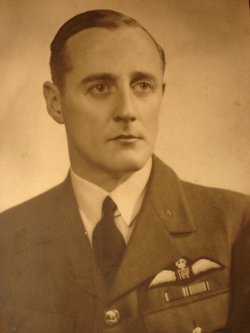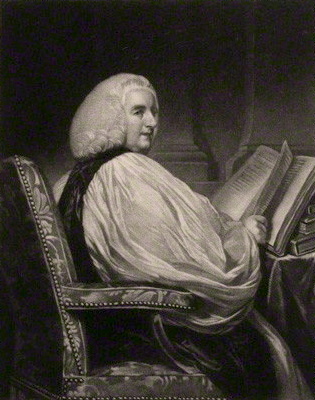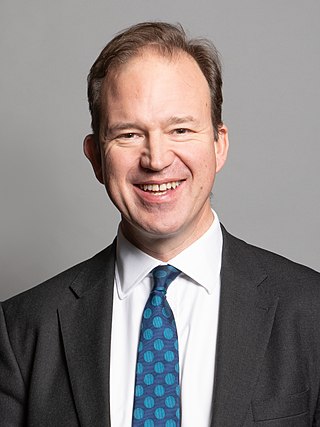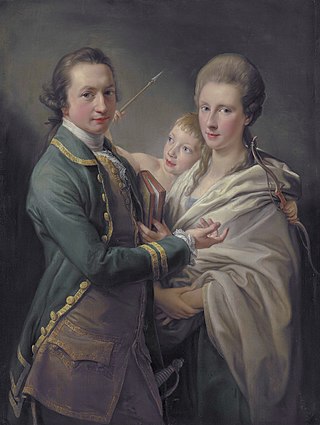
Montagu Collet Norman, 1st Baron Norman DSO PC was an English banker, best known for his role as the Governor of the Bank of England from 1920 to 1944.

Marquess of the County of Bute, shortened in general usage to Marquess of Bute, is a title in the Peerage of Great Britain. It was created in 1796 for John Stuart, 4th Earl of Bute.

Baron Northbourne, of Betteshanger in the County of Kent, is a title in the Peerage of the United Kingdom. It was created in 1884 for Sir Walter James, 2nd Baronet, who had earlier represented Kingston upon Hull in the House of Commons as a Conservative. His son, the second Baron, sat as a Liberal Member of Parliament for Gateshead. The latter's great-grandson, the fifth Baron, who succeeded his father in 1982, was one of the ninety elected hereditary peers that were allowed to remain in the House of Lords after the passing of the House of Lords Act 1999, and sat as a cross-bencher until his retirement in 2018. As of 2019, the titles are held by his son, the sixth baron, who succeeded his father in that year.

The Roundhouse is a performing arts and concert venue at the Grade II* listed former railway engine shed in Chalk Farm, London, England. The building was erected in 1846–1847 by the London & North Western Railway as a roundhouse, a circular building containing a railway turntable, but was used for that purpose for only about a decade. After being used as a warehouse for a number of years, the building fell into disuse just before World War II. It was first made a listed building in 1954.

Walter Francis John Montagu Douglas Scott, 9th Duke of Buccleuch and 11th Duke of Queensberry, was a Scottish peer, politician and landowner. He served in the Royal Naval Volunteer Reserve in the Second World War, and represented Edinburgh North in the House of Commons for 13 years.

Hugh Michael Seely, 1st Baron Sherwood, known as Sir Hugh Seely, 3rd Baronet, of Sherwood Lodge, Nottinghamshire, from 1926 to 1941, was a British Liberal politician.
Henry Francis Pelham, FSA, FBA was an English scholar and historian. He was Camden Professor of Ancient History at the University of Oxford from 1889 to 1907, and was also President of Trinity College, Oxford, from 1897 to 1907.

Baron Rokeby, of Armagh in the County of Armagh, was a title in the Peerage of Ireland. It was created in 1777 for The Most Rev. Dr Richard Robinson, Church of Ireland Lord Primate of All Ireland and Lord Archbishop of Armagh, with remainder to his brothers and his father's second cousin Matthew Robinson and the heirs male of their bodies. In 1785 he also succeeded his elder brother as 3rd Baronet according to a special remainder. Lord Rokeby never married and was succeeded in the barony and baronetcy according to the special remainders in the letters patent by his third cousin Matthew Robinson-Morris, the second Baron and fourth Baronet. He was the son of Matthew Robinson, son of Thomas Robinson, son of Sir Leonard Robinson, brother of William Robinson, great-grandfather of the first Robinson Baronet and the first Baron Rokeby. The second Baron was an academic, politician and eccentric. Born Matthew Robinson, he assumed by Royal licence the additional surname of Morris in 1746 on succeeding to the Mount Morris Estate in Monks Horton, Kent through his mother. He never married and was succeeded by his nephew Morris Robinson, the third Baron. He was the elder son of Morris Robinson.

Alexander Jesse Norman is a British politician who has served as Shadow Leader of the House of Commons since November 2024. A member of the Conservative Party, he has been a Member of Parliament (MP) for Hereford and South Herefordshire since 2010.

Arthur Saunders Gore, 2nd Earl of Arran, KP, PC (Ire), styled The Honourable Arthur Gore from 1758 to 1762 and Viscount Sudley from 1762 to 1773, was an Irish peer and politician.
Sir Charles Nicholas Mander, 4th Baronet is a British baronet, historian and businessman.
The Norman Baronetcy, of Honeyhanger in the Parish of Shottermill in the County of Surrey, is a title in the Baronetage of the United Kingdom. It was created on 22 June 1915 for the journalist and Liberal politician Henry Norman. The second Baronet, Sir Nigel Norman was an Air Commodore in the Auxiliary Air Force (Reserve) and was killed in action in 1943. The third Baronet was high sheriff of Oxfordshire from 1983 to 1984 and a Deputy Lieutenant of the county in 1985.
Air Commodore Sir Henry Nigel St Valery Norman, 2nd Baronet, was a consulting civil engineer and Royal Air Force officer during the first half of the 20th century.
Sir Richard Bulkeley, 2nd Baronet FRS was an Irish politician and baronet.
Sir Tristram Beresford, 3rd Baronet was an Anglo-Irish soldier, politician and baronet.
James Annesley, 2nd Earl of Anglesey FRS, styled Lord Annesley from 1661 to 1686, was a British peer.
Dominick Burke or Bourke was an Irish politician from County Galway.

Group Captain Sir Archibald Philip Hope, 17th Baronet, was a Scottish aristocrat and aviator who flew with the Royal Air Force during the Second World War.
Elizabeth Annesley, Countess of Anglesey was an English noblewoman. She was the wife of James Annesley, 2nd Earl of Anglesey, and the mother of the 3rd, 4th, and 5th Earls.
Sir Benjamin James Chapman, 4th Baronet was an Anglo-Irish Whig politician and barrister.










